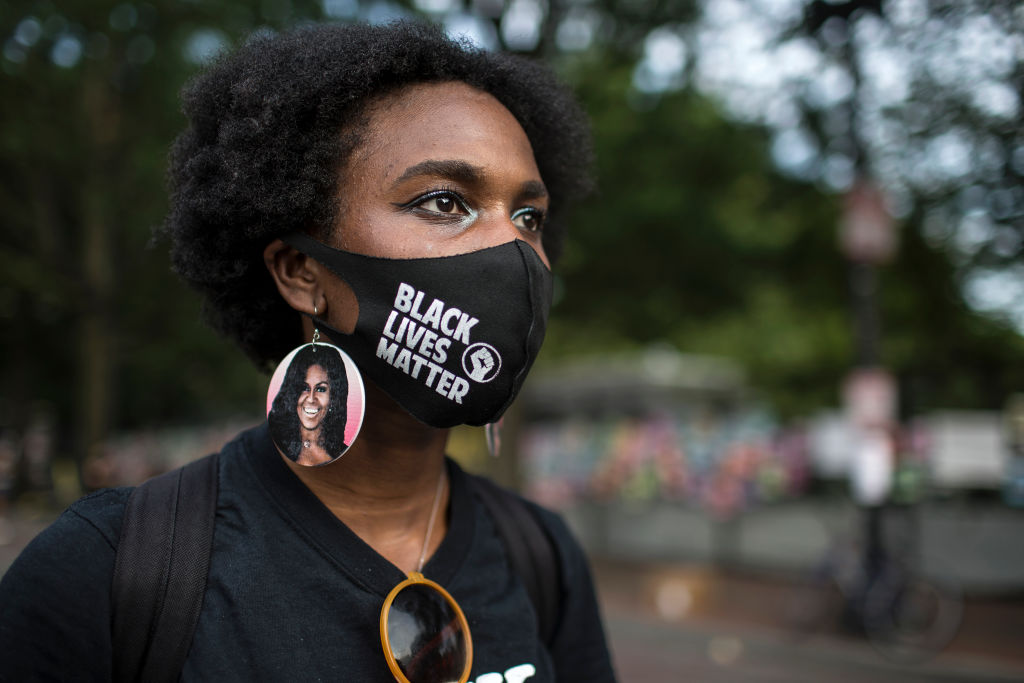
Source: Probal Rashid / Getty
Over the past several years, I’ve seen more and more Black women saying publicly and privately that they want a “soft” life. A soft life is one where Black women are not overburdened by their and everyone else’s life. It is one where Black women embrace ease over struggle. It is one where Black women abandon an obsession with productivity in search of being present and fully engaged in our bodies and in our lives. It is one where rest is not a fantasy but rather a reality.
In my book, “First and Only: A Black Woman’s Guide to Thriving at Work and in Life,” I encourage Black women to do Black womanhood differently, meaning abandon the compulsion to be strong in every circumstance. I encourage Black women to rethink being everything to everybody and being overly responsible for others. As desperately needed as this is, we need help from others to make the soft life accessible for more and more Black women.
While declarations of a soft life are aspirational, we cannot achieve those until our nation confronts and dismantles systemic racism. Systemic racism is the way in which racism is embedded across institutions and society. There isn’t a facet of life that isn’t impacted by racism: education, employment, housing, government, government surveillance, incarceration, criminal system, immigration, medicine and health care. All facets of life are imbued with racism. That means Black women who desire a soft life are besieged with racism in finance, education, housing, medicine, etc. We are not only confronting racist individuals but racist systems. This is a direct affront to a Black woman’s existence, not merely her ability to embrace softness.
Certainly, we should be raising our daughters and encouraging our sisters to honor their humanity and resist the strong Black woman trope. But choosing a soft life is greater than individual effort; it requires communal work.
From data, we know, as the Center for American Progress reports, that “Black women have among the highest labor force participation rates but also work disproportionately in low-paid jobs with few benefits.” As Black women, we can always examine our relationship with work, family and friends, ensuring that we are setting proper boundaries and tending to ourselves as well as others. But we need structural change more than we need individual fixes. We can opt to exercise, eat better, nurture our spiritual selves and ensure a heaping of joy. But until the nation confronts systemic racism, Black women will continue to be battered by higher infant mortality, higher maternal mortality, poorer health outcomes overall, less generational wealth, less access to an equitable and quality education, and being trapped in environments with a lack of resources and rising crime.
Real, Not Imagined
I am not surprised that Black women are pushing back on the notion of being strong, opting instead for soft landings. We are tired. I also don’t believe that the pressure to be strong is imagined. It is not that Black women wake up and are determined to be as strong as possible. It is a mandate in many Black and non-Black spaces because we must armor up to battle the barrage of systemic racism and unconscious bias we face on the daily, from how we wear our hair to what clothes we wear. It continues in the workplace. Black women who need paid time off work must go without if companies don’t offer paid time off or if supervisors selectively offer it. For those who work for an entity that doesn’t offer paid time off or penalizes team members when they need it, they must choose between soldiering on to collect their full paycheck or taking time off and risking reprimand or termination.
Let’s also not forget what we learn from Health Care Dive: “Black women are more widely represented in healthcare than any other demographic group, but are disproportionately concentrated in some of the industry’s most dangerous and lowest wage jobs, according to a new study published in Health Affairs.” It isn’t that Black women don’t want rest. Many simply can’t find it.
Additionally, when Black women work in positions that don’t offer a competitive or fair wage, many must choose between getting a second or third job or going without critical necessities. And then Black women are penalized for experiencing lack. When Black women experience intimate partner violence, they must navigate how to escape and heal, even while negotiating a racist system less sympathetic when the victim is Black and female. When Black women raise children as single mothers, they do so knowing that a whole host of people unfairly blame single Black mothers for many societal ills. Jason Whitlock is the latest to go after single Black mothers, even while assigning no blame whatsoever to men.
Yes, a soft life is nice, and more Black women should experience it. But without dismantling systemic racism, Black women are in search of something that simply doesn’t exist for many of us. There isn’t enough manifesting power to erase systemic racism.
What Now?
In the absence of policies that improve conditions for Black women, Black women can still advocate for ourselves and others; still examine what we are demanding from others; and understand that while we have our own work to do, the work is not ours alone. Part of softness is understanding what is ours to carry and what belongs to others. In this instance, we need help ensuring that softness is not some lofty ideal but a reality for the masses of Black women.
Jennifer R. Farmer is author of “First and Only: What Black Women Say About Thriving at Work and in Life.”
SEE ALSO:
Op-Ed: For Black Women, Racism, Denial and Disrespect Never End; But Still We Rise
Black Women’s Agenda Celebrates ‘Unapologetic Joy’ In Honoring Community Leaders
The post Black Women Deserve A Soft Life, And Systemic Racism Sometimes Makes That Unattainable appeared first on NewsOne.

